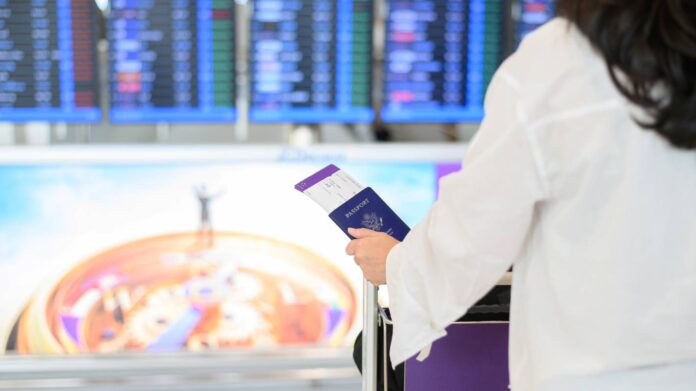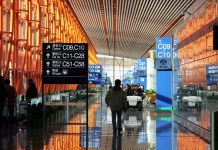After two years of closed borders and lockdowns, 2022 represented the great return to travel.
Then just as we were finally able to get back out there, everything suddenly became a whole lot more expensive.
While you obviously don’t want to blow your entire savings on a holiday, you don’t have to let inflation disrupt those long-awaited travel plans, either.
With a bit of careful planning and some simple strategies, here’s how to ensure you get the most bang for your (significantly weakened) buck, whether you’re holidaying at home or heading overseas.
READ MORE:
* ‘Bonkers’ airfares: Why you might be out of luck if you want to fly home for Christmas
* Air fares: Travellers unhappy at skyrocketing prices
* Is the current sky-high cost of flights putting you off travel?
Understand how airfares work
One of the biggest barriers to travel right now is ridiculously expensive airfares. But if you understand how airlines set their prices, you can avoid paying top dollar for your flights.
123RF
Some careful planning and simple strategies can save you money during these expensive times.
Most airlines follow the law of supply and demand. They want to fill as many seats as possible at the highest price passengers are prepared to pay.
To do so, they’ll generally take a flight and allocate all the seats into different price buckets. When they sell the flight, seats in the cheapest bucket go first. As the plane fills up, they move through the higher buckets, until all that is left are seats in the most eye-wateringly expensive bucket.
For flights during high-demand periods when they know people will be desperate to fly – like Christmas and school holidays – there will be fewer seats tipped into the cheaper buckets. So those will be snapped up early.
On routes where there’s more competition – like flying trans-Tasman – or at times when there’s less demand for flights, like during a weekday, you can expect more seats in the cheaper buckets, to entice people to travel.
In 2022, with the combination of fewer flights as airlines adjust to a post-Covid world, and huge pent-up demand for travel, most planes have been full, which is why we’ve been seeing more of those crazy-expensive fares.
The takeaway is to lock in your flights as soon as possible to snag the cheapest seats, especially if you want to travel at a popular time.
Book your accommodation direct
By all means, use online travel agencies like Booking.com and Expedia to research accommodation options – they’re great for getting an idea of what’s available in your price range.
ISTOCK/Stuff
There’s nothing like an accommodation discount to make your holiday extra sweet.
But once you’ve used them to find your ideal hotel, open a new tab and search for the hotel’s website. Compare the rates being offered by the online travel agencies with the hotel’s own rates.
If the hotel’s rates appear to be more expensive, give them a call or send an email. In many cases, they’ll at least be able to match the cheaper price – and may offer you extra perks, like a better room or a bottle of wine, for taking the time to book direct (and saving them from having to pay the online travel agency commission).
Best case scenario, they’ll offer you a better rate, which could save you hundreds of dollars.
Also be sure to do a search for any coupons or discounts being offered by the hotel – like 10% off if you sign up to their newsletter – which can also shave down the rate.
Go all-inclusive
Even after you’ve booked your flights and accommodation, it’s the extras – the taxi rides to your hotel, the meals and drinks, the spontaneous sightseeing activities – that can really add up.
Wang Xi/Unsplash
Once you’ve paid for your package holiday, the only thing left to worry about is pool or beach?
The perfect solution if you’re prone to overspending? An all-inclusive holiday.
Whether it’s a cruise, a resort, or a package that incorporates flights, accommodation, transfers and tours, the beauty of this type of holiday is you know exactly how much it will cost upfront – and there can be some great deals on offer, particularly if you’re prepared to travel at off-peak times. Talk to a travel agent for some ideas.
Get organised with foreign currency
With the weakened New Zealand dollar, you could be in for a nasty surprise when you look at your statement and realise that US$15 cocktail actually cost you closer to NZ$30.
Booking a destination where the NZD goes further is a good option – although with exchange rates going up and down from one minute to the next, there’s no guarantee it will be the same when you land.
Dean Kozanic/Stuff
If the exchange rate is good when you book your holiday, stock up on some cash.
That’s why it’s a good idea to lock in the optimal rate, by booking and paying for things like activities and tours in advance, and possibly even preloading a travel money card.
Consider a credit card that has no foreign currency conversion fee, but if you are using your regular card, always opt to pay in the local currency – no matter how comfortingly familiar that “pay in NZD” option looks. This practice, known as “dynamic currency conversion”, offers the crappiest exchange rates, and pings you with extra fees for the privilege.
Don’t eat all your money
Eating and drinking is understandably a highlight of a holiday. But it’s also an easy expense to cut down, without depriving yourself completely.
Prioritise what meals are most important to you. Do you really need to spend $30 on the average hotel buffet breakfast, or could you grab a coffee and pastry from the bakery next door for $5?
Unsplash
Fine dining isn’t totally off the table – just see if you can book in for lunch instead.
Another budget hack is to make lunch your fanciest meal. Plenty of top restaurants offer lunch menus featuring many of the same delicious dishes they would offer during their dinner service, but for a cheaper price. Also keep an eye out for daily dining deals and discounts, like two-for-one Tuesdays.
Don’t feel like you have to dine out for every meal, either – visiting foreign supermarkets is a highly underrated experience. You get to feel like a local, and you can get grab-and-go meals for a bargain price (the huge array of foods available at convenience stores in Japan is a great example of this). Booking accommodation with a kitchenette makes DIY dining more palatable, too.
Finally, resist the overpriced temptations at the airport. Bring your own snacks and water bottle instead.
What are your tips for saving money on holidays? Let us know in the comments.













